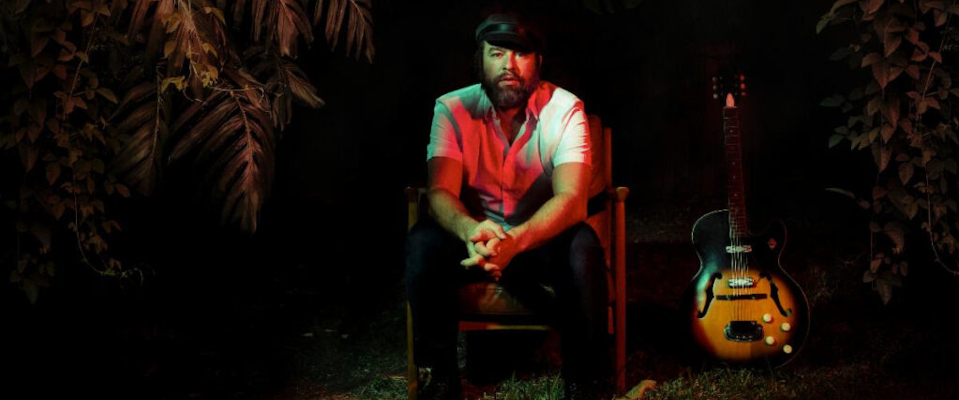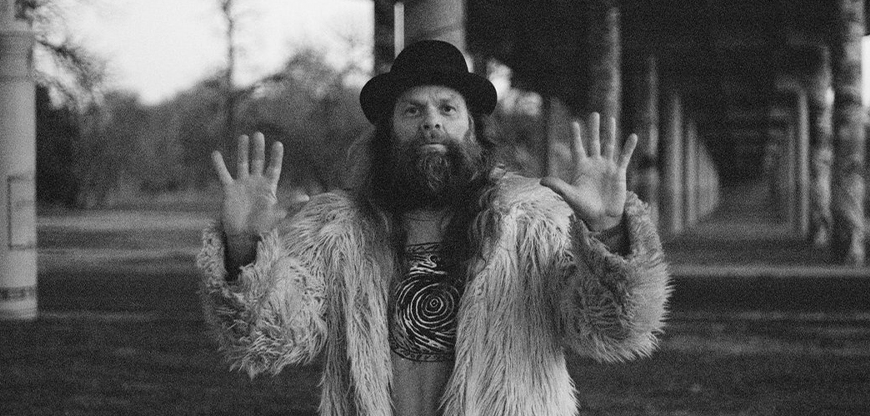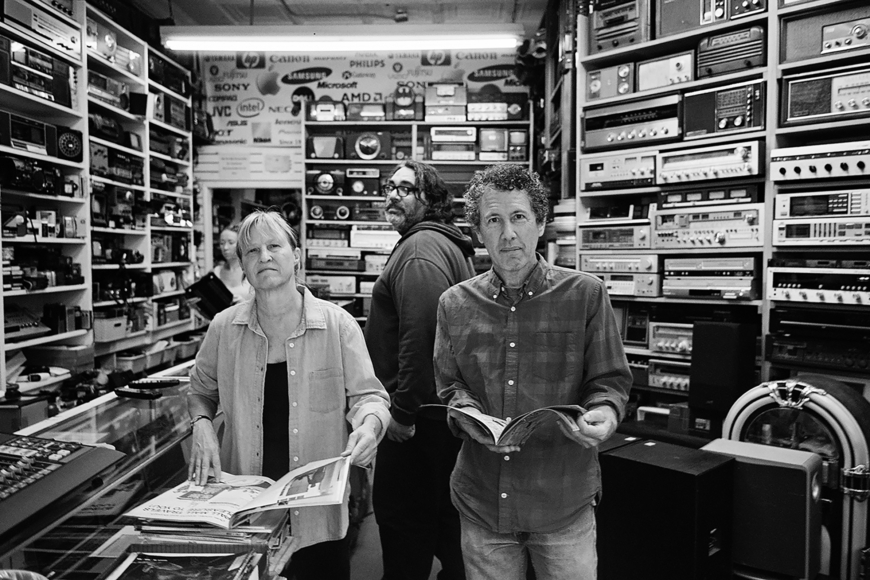by Jeff McCord
It’s become a 2020 cliche. A stuck-at-home member of a big booming rock and roll band releases a quiet, introspective record coping with the fears of the modern world.
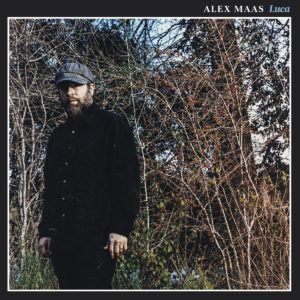 Luca isn’t that. For one thing, Alex Maas’ new album, released December 4th, was finished pre-pandemic. It’s not that introspective, either. Its themes are more timeless and universal, and the set includes several songs (“Been Struggling”, “Shines Like the Sun”, “The City”) that date back more than a decade.
Luca isn’t that. For one thing, Alex Maas’ new album, released December 4th, was finished pre-pandemic. It’s not that introspective, either. Its themes are more timeless and universal, and the set includes several songs (“Been Struggling”, “Shines Like the Sun”, “The City”) that date back more than a decade.
Most songwriters are more about their current work than songs they wrote so long ago. So why has Alex finally recorded them?
“Look, I’m the first one to always be playing the new material,” explains Maas. “Whenever I make a record, even with Black Angels, I’m always going to play the things we made yesterday. It’s hard for me to tell what’s relevant, what’s not, and the only way I can tell us if other people still think it’s fresh. And that was how some of these other songs made it on this record. It wasn’t me saying, ‘this is a brilliant song’. It’s more like people [saying] I like that song and it would be great if it was on this record.”
“It’s interesting to be put in a situation where I am releasing songs that have such a nostalgic feeling for me, to go through those thoughts and emotions again. It’s like a paragraph out of your diary. The songs were written around the time that we first met, 10 to 15 years ago, but it’s interesting how some songs stay in the state of chronological infantility. I feel like they could have been written 50 years ago or they could have been written now. I never set out to make music like that. I just can identify when that happens.”
Luca is named after Alex and his wife Michelle’s son, born in July of 2018, and it differs from the reverb-drenched drone of the Black Angels. There’s some of that, sure, but it’s more hushed. The album’s closer, “The City”, with its lilting vocals and ominous theme, feels like a paranoid folk song.
“I [initially] thought this record was going to be a straight-up folk record, acoustic guitar and vocals, the whole thing. “The City” came from a song that I heard (former Black Angel) Nate Ryan play nine or 10 years ago, it was unwritten and unfinished, and I kind of stole that song from Nate. That song was special to me because it was directly inspired by an artist who was close to me, like would have happened in Greenwich Village in the 60s. I riffed on it and made it my own thing. It could have been written in the 1500s. ‘All the watchmen on the tower are sleeping – that’s a city that’s ripe for the taking.’ When has there ever not been a time like that for our country? We took over this country from the indigenous people, resting and living in nature without a fear in the world. That is still happening in the world today. That’s what’s so interesting about that song to me, the idea that the enemy is right outside the gate and once you wake up, they’re already inside. They could be taking over a country, they could be running for president. Or the enemy could be something not so obvious. Maybe the enemy is a virus.”
“Been Struggling”, in a year where so many people are, is actually an older pop song with a rousing chorus, dealing with the highs and perils of first love.
NPR MUSIC LIVE SESSIONS/KUTX – Alex Maas performs “Been Struggling” for KUTX Pop-Up Sessions, Oct. 2020.
Credits: Camera and Edit: Michael Minasis; Audio: Jake Perlman; Producer: Deidre Gott
“Everybody knows that feeling of like going on a date for the first time,” explains Alex, “and then the week after, it’s like, oh wow, this could actually be something. And then two weeks later, this person’s still a stranger. I don’t know anything about this person, but I love them. But do they love me? And does that even matter or is this just like something’s going to happen temporarily?”
One of the album’s most enigmatic tracks is “What Would I Tell Your Mother”, a Michael Hurley-like folk thrum that despite repeated listens, doesn’t really reveal what it’s about.
“What you hear on the record is actually me playing that song for the very first time. I went into the studio and I started playing the music. And for me, that’s how it’s always been – the music comes first and then and then, lyrically, I try to just identify what I’m seeing in the music. So the record is actually me walking into the studio and playing this music for the first time ever and actually just freestyling. It was clear to me that they were traveling in this winter landscape, trying to find shelter and they were with their children. And one person had to make the sacrifice to stay behind. So, yeah, that was a fun one for me to put on the record, one of those moments where you just walk into reality and talk about what you see in the landscape.”
The most Black Angels-like song on Luca is also one of the newer compositions, “American Conquest”.
Maas explains its origins. “I’ve been scoring films and documentaries for six or seven years now with my buddy Brett, with whom I also recorded this record. “Conquest” was actually an instrumental for a film that we worked on. You know, I guess it goes back to being a parent when I started writing the lyrics for the song. I was [now] a father. You’re trying to figure out the world, trying to figure out how you can better what’s going on. Some of the main problems with the world. Why are your parents feeding their children shitty food and hatred? Feeding their children just terrible things. I realize that’s where most problems come from. Parents and what they’re allowing their kids to eat, both literally and figuratively. What they’re letting them watch, letting them get away with, what are they letting them like. As a parent, you have to let your child discover the world. You want to blame so many problems on the government and the education system and everything else. But so much of that, racism, sexism, starts at home.”
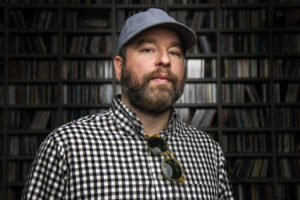
Being a parent has transformed Maas.
“At the start of this record, my wife and I were having a baby for the first time. And that was a huge transition. I think that you can hear that on the record, this sense of security and the idea of what home is, a sense of protecting that. Questioning the world and questioning what it’s like to bring a child up in what can be a scary place at times.”
“Luca still has elements of [my] songwriting, but it has a little bit more preciousness to it. The music just seems really honest to me. I feel this is the kind of music I’ve always wanted to make, but I didn’t really have whatever that is inside of you that says it’s OK to do things outside of your band and do things for yourself.”
Being a parent gave him that.
“My wife and I,” says Maas, ”we’ve experienced a lot. I’m not like a teenager anymore, not in my 20s anymore. There are only so many experiences in your life, and we wanted to have this opportunity. Having a child like this one, I can’t imagine what it’s like not being a parent. It’s enriched my life in so many different ways. It’s scary for other reasons. In the last year, you know, it’s kind of like, wow, where are we? Where is the world headed?”
These aren’t typical thoughts for a successful rock musician whose band has traveled the world.
“I think what you hear on this record is kind of like this hodgepodge of emotions that we are just going through, you know, any person would have these feelings, they start at the end of the day just kind of keep coming back. Realizing that home, being at home and is where it’s at, fostering and developing and learning and nurturing that that relationship with your family is a beautiful thing.”
